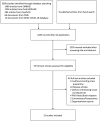Social consequences of mass quarantine during epidemics: a systematic review with implications for the COVID-19 response
- PMID: 33051660
- PMCID: PMC7649384
- DOI: 10.1093/jtm/taaa192
Social consequences of mass quarantine during epidemics: a systematic review with implications for the COVID-19 response
Abstract
Four billion people worldwide have experienced coronavirus disease 2019 (COVID-19) confinement. Such unprecedented extent of mobility restriction to curb the COVID-19 pandemic may have profound impacts on how individuals live, travel and retain well-being. This systematic review aims to identify (i) the social consequences of mass quarantine-community-wide movement restrictions-during previous and current infectious disease outbreaks and (ii) recommended strategies to mitigate the negative social implications of COVID-19 lockdowns. Considering social determinants of health, we conducted a systematic review by searching five databases (Ovid-MEDLINE, EMBASE, PsycINFO, China National Knowledge Infrastructure and the World Health Organization COVID-19 database) for publications from inception to 9 April 2020. No limitation was set on language, location or study type. Studies that (i) contained peer-reviewed original empirical evidence and (ii) focussed on non-epidemiological implications of mass quarantine were included. We thematically synthesized and reported data due to heterogeneous disease and country context. Of 3067 publications found, 15 original peer-reviewed articles were selected for full-text extraction. Psychological distress, heightened communication inequalities, food insecurity, economic challenges, diminished access to health care, alternative delivery of education and gender-based violence were identified as negative social consequences of community-based quarantine in six infectious disease epidemics, including the current COVID-19 pandemic. In contrast, altruistic attitudes were identified as a positive consequence during previous quarantines. Diverse psychological and social consequences of mass quarantine in previous and current epidemics were evident, but individual country policies had been highly varied in how well they addressed the needs of affected individuals, especially those who are socially marginalized. Policymakers should balance the pros and cons of movement restrictions, facilitate multisectoral action to tackle social inequalities, provide clear and coherent guidance to the public and undertake time-bound policy evaluations to mitigate the negative impact of COVID-19 lockdowns and to establish preparedness strategies for future epidemics.
Keywords: COVID-19; Mass quarantine; epidemics; lockdown; pandemics; psychological impact; social consequences.
© International Society of Travel Medicine 2020.
Figures
References
-
- World Health Organization WHO Coronavirus Disease (COVID-19) Dashboard. Geneva: World Health Organization, 2020. https://covid19.who.int (30 August 2020, date last accessed).
Publication types
MeSH terms
Grants and funding
LinkOut - more resources
Full Text Sources
Miscellaneous


